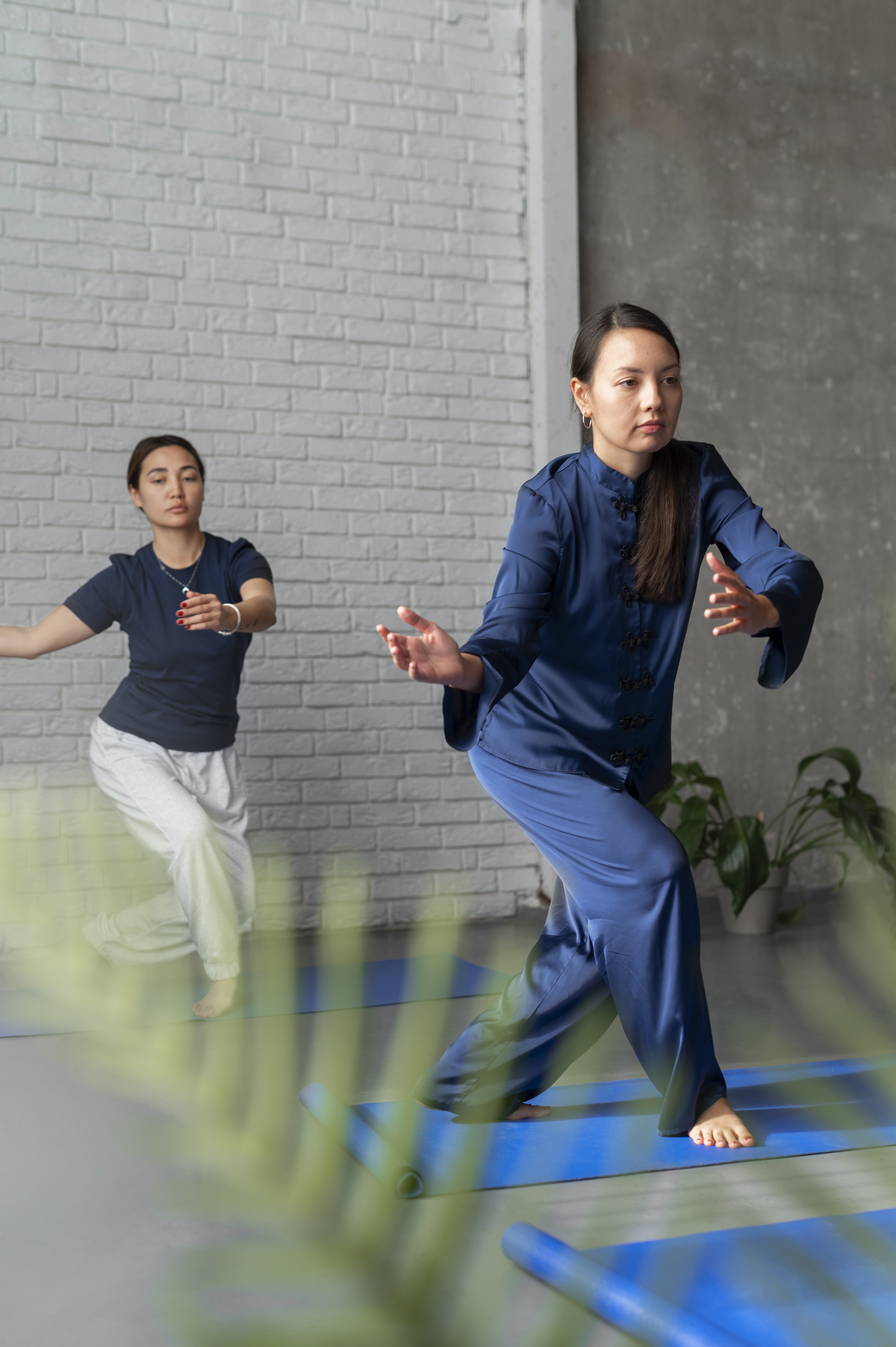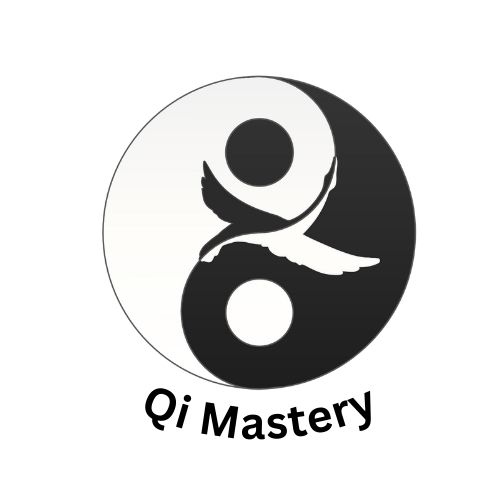How Does Acupuncture Work?
This is how acupuncture works

Traditional Chinese Medicine (TCM) Perspective
Qi and Meridians
Acupuncture is based on Qi (pronounced “chee”). That’s your life energy. In Traditional Chinese Medicine, Qi moves through these invisible lines in the body called meridians. There’s twelve main ones, bunch of secondary ones. When Qi flows good, you’re good. But when it gets stuck—or goes too weak or too strong—then you got problems. Pain, sickness, tiredness, stuff not working right.
The needle don’t fix the problem by itself. What it does is talk to your Qi. When a trained acupuncturist sticks a needle into an acupoint, it’s like tapping into the circuit. That point connects to an organ or body system. So, say you got migraines—we might needle a spot on your foot. Sounds weird, I know. But the meridian runs through the liver system, which connects to the head.
Acupuncture’s job is to bring Qi back into balance. Not boost it up or knock it down. Just balance it. And yeah, this sounds kinda mystical, but after doing this for years… you see patterns. You feel it. People get better when their energy moves right. It ain’t magic, but it works. That’s the TCM way of looking at it.
Modern Scientific Perspective - Nerves, Signals, and Chemicals
Here’s what they do know: acupuncture actually does something measurable in the body. We’re talkin’ nerves, muscles, brain chemistry. It ain’t just placebo.
See, when that needle goes in — even if it’s tiny and barely touches anything — your body notices. Nerve endings fire. The brain gets the signal: “hey, something’s going on over here.” So what happens next? The body starts sending out its own little chemical army. Endorphins, mostly — those are your natural painkillers. But also serotonin, dopamine, stuff that calms you down or boosts your mood.
Some researchers think acupuncture tweaks the way your spinal cord processes pain. Others say it helps blood flow or reduces inflammation. Honestly, there’s still a lot we don’t know. But you can hook someone up to a brain scanner and literally see parts of the brain light up when needles go in. So something’s happening.
Bottom line: even if you throw out all the energy talk, there’s still legit science showing acupuncture affects the nervous system and brain chemistry. That’s why hospitals are using it now. Not just hippie clinics anymore.
Qi and Meridians: How the Body Communicates - The Foundation of Traditional Chinese Medicine
In Traditional Chinese Medicine, everything starts with Qi. It’s not a mystical idea — it’s how we describe function, flow, and connection in the body. Qi is the organizing energy that makes things move and work. Your breath, your circulation, your digestion — all of it runs on Qi.
Qi moves through the body along specific channels we call meridians. These aren’t random. They’ve been mapped out for thousands of years. Each one is linked to an organ system — like the liver, lungs, heart — and they run through the entire body. Head to toe, inside to surface.
When Qi moves freely, you feel healthy, clear, balanced. When it gets stuck, blocked, or deficient, you get symptoms. Pain, stress, fatigue, digestive issues — they’re all signs that something isn’t flowing the way it should.
Acupuncture works by finding points along these meridians where Qi can be influenced. Some points strengthen it. Some move it. Some clear blockages. It’s like tuning a system that already knows how to fix itself — you just have to give it the right signal.
This is the core of Chinese medicine: the body knows how to heal. We just help it remember how.

Qi and Meridians: How the Body Communicates - The Foundation of Traditional Chinese Medicine
Nerves, Signals, and Chemicals
Here’s what we do know: acupuncture actually does something measurable in the body. We’re talkin’ nerves, muscles, brain chemistry. It ain’t just placebo.
See, when that needle goes in — even if it’s tiny and barely touches anything — your body notices. Nerve endings fire. The brain gets the signal: “hey, something’s going on over here.” So what happens next? The body starts sending out its own little chemical army. Endorphins, mostly — those are your natural painkillers. But also serotonin, dopamine, stuff that calms you down or boosts your mood.
Some researchers think acupuncture tweaks the way your spinal cord processes pain. Others say it helps blood flow or reduces inflammation. Honestly, there’s still a lot we don’t know. But you can hook someone up to a brain scanner and literally see parts of the brain light up when needles go in. So something’s happening.
Bottom line: even if you throw out all the energy talk, there’s still legit science showing acupuncture affects the nervous system and brain chemistry. That’s why "BIG NAME" hospitals are using acupuncture now. Think: Harvard Medical School, the Mayo Clinic. Even Walter Reed Army Hospital.
Because acupuncture works.
What Happens When the Needle Goes In - Real Effects, Not Just Hype
Alright, so let’s talk about the moment the needle goes in. First off — it doesn’t hurt. People hear "needle" and they freak out. But these aren’t injection needles. They're thinner than a strand of hair. You feel a pinch maybe, sometimes not even that.
But here’s what matters: it triggers something. Locally, you might get a micro-injury. Not damage — just enough to wake up the area. Your body says, “hey, what’s going on here?” and sends blood, oxygen, immune cells, all of it. That’s part of the healing.
And deeper than that — the needle’s talking to your nervous system. Especially if you hit a point near a nerve bundle. That sends signals to your spinal cord and brain. It can shift how your brain interprets pain. That’s why folks come in with chronic pain and walk out feeling... lighter. Not “cured,” always. But different.
Also — acupuncture slows your system down. That’s why people fall asleep on the table. It gets your nervous system to chill — especially the sympathetic side, the fight-or-flight stuff. And that’s good. ‘Cause most of us live revved up all the time. Acupuncture hits the brakes, just enough to help you heal.
It’s Not Just Pain — It Hits All Kinds of Systems - Hormones, Digestion, Sleep, Emotions
People always think acupuncture is just for back pain. Sure, it works for that. But that’s just the surface. When you shift nervous system function and blood flow, all kinds of stuff changes. We’re talking hormones, immune system, digestion, sleep — even emotions.
Example: stress. You come in tight, anxious, can’t breathe right. We needle a few key calming points — maybe some on the wrist, some behind the ear, maybe between the eyebrows — and boom, your shoulders drop. Your breath slows. That ain’t a trick. That’s real-time nervous system modulation.
Women dealing with hormonal stuff — period pain, fertility, menopause — acupuncture can help regulate the cycle by influencing the hypothalamus and pituitary. Those are the master hormone regulators. The needle might not seem like it’s doing much, but it’s hitting the command center.
Gut problems? We work the stomach and spleen meridians. Sleep issues? There’s a point on the inside of your ankle that knocks people out. Not because it’s magic — because it’s wired in. Through nerves, blood flow, even brain chemistry.
So yeah — it’s not just for sore backs. Acupuncture’s like tapping into your body’s control panel. You just gotta know where the switches are.

Acupuncture Isn’t One-Size-Fits-All - - It’s Personalized Medicine, Not a Cookie-Cutter
Here’s the part most folks don’t get: acupuncture’s not like taking Tylenol. You don’t get the same treatment as the guy before you. We don’t say, “Oh, shoulder pain? Do point A, B, and C.” Nah — we look at your whole system.
That means we ask weird questions. How’s your sleep? Do you get hot at night? What’s your poop like? (Yeah, I know.) But all of it matters. TCM looks for patterns — what’s overactive, what’s weak, where’s the imbalance. You could have ten people with migraines and treat them ten different ways. That’s the power of it.
Western medicine’s great at names: arthritis, IBS, anxiety. But acupuncture doesn’t care so much about labels. It looks at function. What’s blocked? What’s not flowing? That’s the stuff we’re after.
And it changes over time. You might start with five needles on day one, and a totally different set two weeks later. It evolves with your body. That’s why people keep coming back. It’s not just treatment — it’s like ongoing body tuning.
If you want quick fix, maybe this ain’t your thing. But if you want your body to actually start working better — yeah, acupuncture’s worth a real look.
So Does It Really Work?
If You Want Less Pain, Better Sleep, and to Feel Like Yourself Again — Yeah, It Works
Let me make this simple.
You’re not coming here because you love needles. You’re here because you’re tired of feeling like crap.
You’re tired of the pain meds that wear off in 4 hours.
You’re tired of waking up exhausted even after 8 hours of sleep.
You’re tired of being short with your spouse, your kids, your coworkers — because your body’s been running on empty.
So does acupuncture work?
It works if what you want is this:
No more daily headaches.
No more waking up at 2am.
No more gut issues that ruin every meal.
No more “I just don’t feel like myself anymore.”
Acupuncture helps your body do what it was built to do: heal, reset, recover. You give it the right inputs, you get the right outputs.
Here’s the truth: this isn’t a magic trick. It’s a system. You show up. You follow the plan. And slowly — sometimes fast — your body remembers how to feel good again.
Not just “less pain.”
Not just “less stress.”
You feel like YOU again.

COMPANY INFORMATION
(408) 475-7925
10580 S De Anza Blvd, Cupertino, CA 95014
BUSINESS HOURS
Monday
Tuesday
Wednesday
Thursday
Friday
Saturday
Sunday
BUSINESS
CLOSED
9 AM - 6 PM
9 AM - 6 PM
9 AM - 6 PM
9 AM – 6 PM
9 AM – 12 PM
CLOSED
BUSINESS HOURS
Monday
Tuesday
Wednesday
Thursday
Friday
Saturday
Sunday
9 AM–3:30 PM
9 AM–3:30 PM
9 AM–2:30 PM
1:30–3:30 PM
5–6:30 PM
9 AM–2:30 PM
9 AM–4 PM
CLOSED
Copyright 2025. Vital Qigong Acupuncture. All Rights Reserved.

